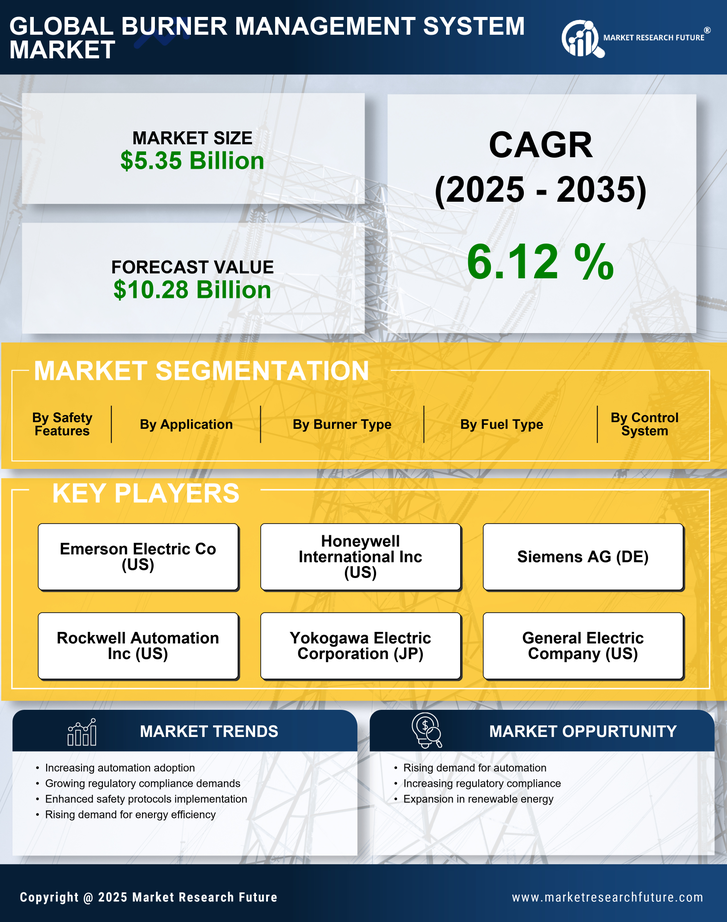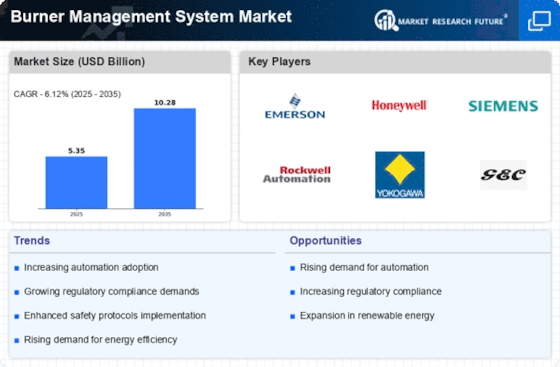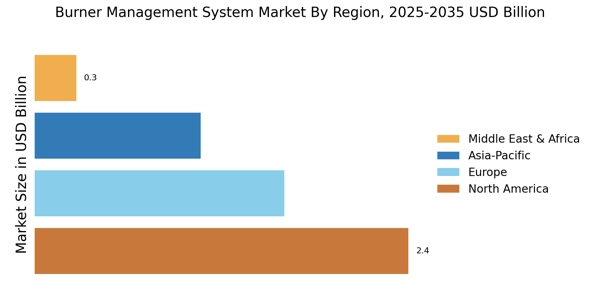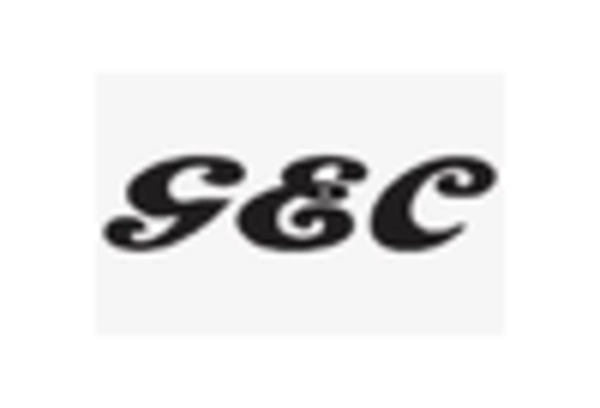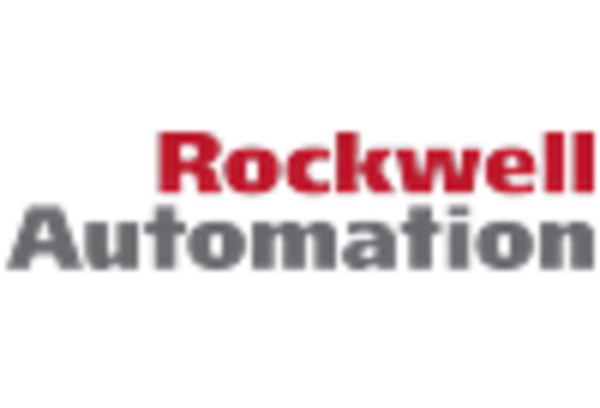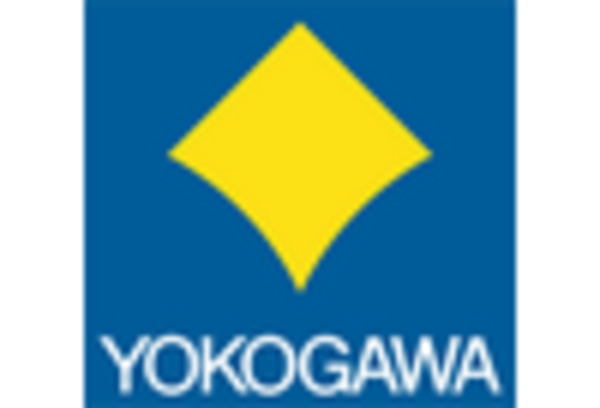Safety Regulations
Safety regulations play a crucial role in driving the Burner Management System Market. Stringent safety standards imposed by regulatory bodies necessitate the implementation of effective burner management systems to mitigate risks associated with combustion processes. Industries such as oil and gas, petrochemicals, and power generation are particularly affected by these regulations, which aim to prevent accidents and ensure operational safety. Compliance with safety standards not only protects personnel and the environment but also enhances the reputation of companies. As a result, organizations are increasingly investing in advanced burner management systems to meet regulatory requirements. The market is projected to witness a steady growth rate, with safety compliance being a key factor influencing purchasing decisions in the Burner Management System Market.
Operational Efficiency
The pursuit of operational efficiency is a significant driver in the Burner Management System Market. Companies are continually seeking ways to optimize their processes, reduce energy consumption, and minimize waste. Burner management systems contribute to these goals by providing precise control over combustion processes, leading to enhanced fuel efficiency and reduced emissions. As industries face rising energy costs and increasing pressure to adopt sustainable practices, the demand for efficient burner management solutions is likely to grow. Market analysis suggests that organizations implementing these systems can achieve energy savings of up to 20%, making them an attractive investment. This focus on operational efficiency is expected to propel the Burner Management System Market forward, as businesses prioritize cost-effective and environmentally friendly solutions.
Technological Integration
The integration of advanced technologies into the Burner Management System Market is a pivotal driver. Innovations such as artificial intelligence and machine learning enhance the efficiency and reliability of burner management systems. These technologies facilitate predictive maintenance, reducing downtime and operational costs. Furthermore, the adoption of IoT devices allows for real-time monitoring and data analytics, which can lead to improved safety and performance. As industries increasingly seek automation and smart solutions, the demand for technologically integrated burner management systems is expected to rise. This trend is reflected in market projections, which indicate a compound annual growth rate of approximately 6% over the next five years, underscoring the importance of technological advancements in shaping the future of the Burner Management System Market.
Market Expansion in Emerging Economies
The expansion of industries in emerging economies is a notable driver for the Burner Management System Market. As countries develop their industrial sectors, there is a growing need for efficient and safe combustion management solutions. Industries such as manufacturing, energy, and chemicals are rapidly evolving, leading to increased investments in burner management systems. These systems are essential for ensuring compliance with safety regulations and optimizing operational performance. Furthermore, the rising awareness of environmental concerns is prompting industries in these regions to adopt cleaner technologies. Market forecasts indicate that the demand for burner management systems in emerging economies could grow at a rate of 7% annually, highlighting the potential for market expansion in the Burner Management System Market.
Sustainability and Environmental Concerns
Sustainability and environmental concerns are increasingly influencing the Burner Management System Market. As global awareness of climate change and environmental degradation rises, industries are compelled to adopt practices that minimize their ecological footprint. Burner management systems play a vital role in achieving these sustainability goals by optimizing fuel usage and reducing harmful emissions. Companies are investing in advanced burner management technologies that not only comply with environmental regulations but also enhance their corporate social responsibility initiatives. The market is witnessing a shift towards greener solutions, with projections indicating a potential increase in demand for environmentally friendly burner management systems. This trend reflects a broader commitment to sustainability within the Burner Management System Market, as organizations strive to balance operational efficiency with environmental stewardship.
